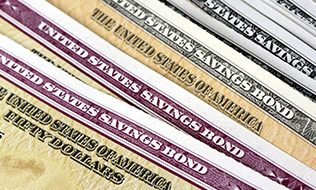

While investors seeking reasonable returns in a low interest rate environment will find them in U.S. treasury and corporate bonds, they should still remain cautious about inflated optimism for the economy and tight credit spreads in the fixed-income market, according to an investment expert.
“Investors around the world are searching for yield. You see it in corporate, you see it in high yields, you see it in emerging markets, and it’s actually gone into the equity space with [real estate investment trusts] as a way for folks to get additional income,” said Gregory Davis, chief investment officer at Vanguard Group Inc., at the firm’s symposium in Toronto on Tuesday.
But he also noted investors have to consider several risks, including the delayed implementation of some of U.S. President Donald Trump’s policy plans; a longer time frame for Britain to leave the European Union; and the U.S. Federal Reserve’s move to normalize its balance sheet. “A combination of those factors has a broad impact on the fixed-income market,” he said.
Read: How would an interest rate boost affect pension plans?
Davis pointed to yields from 10-year treasury bonds. Prior to the U.S. election, yields were 1.83 per cent and, at their peak, rose to 2.63 per cent. But as of June 29, 2017, yields had declined modestly to 2.27 per cent.
When it comes to the cause of the declines, Davis cited the realization that many of the reforms promised during the U.S. election are going to take time to implement,. “A lot of the shine, hope and lustre that was applied to all of the changes that were going to happen in Washington, D.C., haven’t fully developed. There’s been no substantial changes that have happened so far,” he said.
For example, the U.S. government hasn’t been able to repeal the Affordable Care Act, while the slow pace of change is also a factor when it comes to other policy areas such as infrastructure, spending and tax reform, said Davis. “These are all the things the market is slowly coming to grips with and they’re unlikely to happen in 2017.”
Read: 2017 Top 40 Money Managers Report: Investing in the age of Donald Trump
But while U.S. treasury rates have readjusted, the market has yet to do the same, said Davis, pointing to tight corporate spreads and an overvalued equity market.
In the meantime, investors searching for yield are turning to investment-grade corporate bonds, he said.
Nevertheless, Davis noted investors have reason to be confident in the U.S. government’s commitment to loosening regulatory burdens in banking and finance. “It’s been a big headwind in terms of job creation, new business creation. . . . There’s this optimism in the U.S. that we will get slightly above trend growth at about 2.5 per cent this year.”
Read: Bond holders warned to brace for sharp U.S rate hikes
But Davis noted that while the U.S. Federal Reserve has talked about reducing its balance sheet and has raised interest rates four times, the country’s financial conditions are actually slightly looser than they were before.
“The markets haven’t really responded and the primary driver is that credit spreads are relatively still tight, and we see robust equity market returns over the time period. So that’s something for us to be very aware of.”
